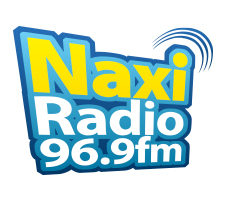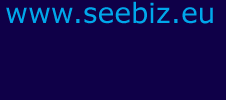Hassan Rouhani - The President of Iran
Financial Times ,Tehran,November 27 2013
Conducted by Lionel Barber, Roula Khalaf and Najmeh Bozorgmehr "This victory is the victory of wisdom, moderation and awareness over fanaticism and bad behavior."– Hassan Rouhani Trained at an early age in the Muslim religion, Hassan Rouhani later studied the law and science. An original revolutionary, Rouhani fled Iran with the Ayatollah Khomeini in 1977 and lived with him in exile until the revolution was over. He and Khomeini then returned to Iran to govern, and Rouhani began a long stretch of varying high-level governmental posts. In 2013, Rouhani ran for the presidency of Iran and won in a landslide over his hardline opponents. Running under the slogan Moderation and Wisdom,Rouhani promised change, hoping to move his country more progressively into the future. On August 2, 2013, Rouhani becoming Iran's seventh president.

Mr President you gave an important speech about the economy; the dire state of the economy. What are your plans to revive the economy and were you shocked by the state of economy when you took office?
This government has inherited serious economic problems. Although we witness both (economic) stagnation and inflation in the country, we are very hopeful about the future of the country’s economy. This is not only my view. My economic team holds a similar view that we can tackle economic problems within a short period of time.
The reason for our hope is that we have been able to curb the fast growth of inflation to some extent over the past three months. I think (point-to-point) inflation has gone down from 43 per cent to 36 per cent. This is a good sign and we will continue this path through two ways of curbing liquidity and improving the business atmosphere.
On the recession, the economic growth rate in 1391 (the Iranian year that ended on March 20 2013)was minus 5.8 per cent, which we will try to pull up to zero by the end of Esfand (the Iranian month that ends on March 20 2014). In the next (Iranian) year, the economic team has predicted positive growth. Meanwhile, the Geneva (nuclear) agreement has created a positive atmosphere in the economic field and this atmosphere will further improve with the implementation of the agreement.
Does your forecast depend on the lifting of economic sanctions and how important is it for the Iranian economy for sanctions to be lifted?
No. If you go through my (economic)report, you see that under the existing sanctions we have managed to lower inflation. Under the existing sanctions, we have predicted that our economic growth rate will be positive nextyear. But at the same time if sanctions are lifted or eased, we can naturally see its impacts on the economy.
The interim nuclear deal is very important for mutual trust between Iran and the rest of the world. What can Iran do to reassure people in Washington and Congress that you really want a deal, you don’t want to build nuclear weapons? And do you have a red line when it comes to the size of the low-level uranium enrichment programme?
The nuclear activities of the Islamic Republic of Iran as has been repeatedly said will be purely for peaceful purposes. The reason is that all our nuclear activities are under the supervision of the International Atomic Energy Agency. As you know, all our nuclear sites are being constantly inspected with IAEA cameras. And as a matter of principle, our doctrine has no room for weapons of mass destruction. How much we will expand (uranium) enrichment or as you put it how big the size is going to be will depend on our needs for nuclear fuel.
You know that we have completed other parts in Iran to make fuel rods and with the plan that we have given to the IAEA, almost from now on whatever (uranium) is enriched will be converted into fuel rods for the (Tehran Research) Reactor.
Is dismantling nuclear facilities in Iran a red line for your government?
-100 per cent.
Obviously this will depend on the future agreement but can you envisage a resumption of bilateral relations with America? Is Iran politically and psychologically ready for such a move? And we shouldn’t forget Britain, the smaller fish.
Regarding the US, we need to decrease tensions at this stage and create mutual trust step by step. The problems created over 35 years cannot be resolved over a limited time. The best test to see whether we are capable of building trust or not is this nuclear issue.
If the first steps taken in Geneva are implemented carefully and precisely, it would mean that we have taken one step forwards towards trust. What I witnessed in New York was a bit of change in the atmosphere compared with the past. I felt in my meetings with intellectuals, university professors and [members of] think-tanks that the [presidential] election has had a lot of impacts.
But as for “the small fish” you mentioned, the situation is very different. We have had relations with the British government that were hugely downgraded under certain conditions.
After (Iran’s presidential) election, some steps to improve ties have been taken. In my telephone conversation with Mr [David] Cameron last week, I had a feeling that the two sides were willing to move step by step towards better relations.
Are you ready perhaps in the future to invite President Obama to Tehran? What do you make of him in terms of a political reformer figure?
In our telephone conversation [in September], I found him to be someone with very polite and smart language. As I said earlier, Iran-US problems are very complicated and cannot be resolved over a short period of time. Despite the complications, there has been an opening over the past 100 days, which can later widen.
The nuclear talks are a touchstone and mutual trust is building. Also, your election signalled a change. But there are sceptics in countries such as Israel and Saudi Arabia and conservatives in Washington and in Congress who say we are still very worried about Iran’s presence in Syria, its support of Hizbollah. How far can you build trust when you still have those problems, when there is mistrust over Iran’s foreign policy?
On Syria, a major concern is the presence of terrorist groups on Syrian soil. This should worry all (countries). I basically consider the continuation of the bloodshed and civil war in Syria to be against the region’s stability. For this reason, I am currently in negotiations with regional and western countries over the future of Syria. We are doing our best to help put an end to the civil war in Syria and for all terrorists to leave Syria. This will depend on the negotiations between the Syrian government and the opposition to pave the way for holding free elections. Whatever the Syrian people wish for in the election, we all have to surrender to.
Are you involved quietly in negotiations with the Americans and with western powers regarding Syria?
Not with the US. But [we are in talks] with Europeans. If Iran participates in the Geneva II talks (a forthcoming peace conference on Syria), it will naturally talk to all members who will be present there.
You are said to be a natural optimist. But you have to be pretty optimistic if you think Bashar al-Assad is going to step down from power in a free and fair election.
I am not an optimist, but I am not a pessimist, either. I cannot predict the future of Syria. But the ground should be prepared for the people’s decision. If people do not vote for Mr Assad, it is fine. Whoever people choose, we will bow to people’s choice.
Are you talking to Saudi Arabia regarding Syria in order to contain this conflict and prepare the ground for a settlement?
We are not in negotiations now. But we have no problem to negotiate with Saudi Arabia or any other country. We have had various and close negotiations with the UN special envoy (on Syria), Lakhdar Brahimi. He was in Tehran a couple of days ago and we met. We have close relations and hold negotiations with the UN over the future of Syria.
You won a decisive victory in June partly with the support of reformists. Do you share their view that it needs to be political reform in Iran or are you merely focused on economic efficiency and better relations with the west and your neighbours?
Obviously economic problems and foreign policy are important but these would not stop us from thinking about cultural issues and domestic politics. As I promised during the election (campaign), I am seeking to devise a civil rights charter.
With the end of 100 days in office, I put up a draft of the charter on the (president’s official) website yesterday so experts can comment on it. I will complete this charter after receiving the views of intellectuals and experts and will present it to the society and will pursue its enforcement. So, this government cannot be bound only to economic and foreign policies.
There’s a lot of relief over the nuclear deal and also impatience for change, impatience also at why some political leaders are in jail. Do you feel strong enough in the near future to release (Mir-Hossein) Moussavi and (Mehdi)Karroubi?
Some issues in the country need consensus of other branches and officials. My government is trying to implement its duties in this regard. Of course not within 100 days. More time is needed for such consensus. You called me an optimist. At least in this case, I am optimistic.
When?
I said I am not a forecaster but I am optimistic.
Can the FT assume that on its next visit to Tehran, it can tweet like you and the supreme leader and other very important people in this country?
You can do it even now.
It should be no problem. It will be resolved sooner than your previous question.
Where do you want to see the country at the end of your first term?
The Islamic Republic of Iran at the end of these four years will be in much better condition economically, with regard to regional influence, culturally and politically at home. We have already seen the signs of progress in all these fields during the past 100 days.
One Iranian says it is wonderful that Iran has moved from the Middle Ages to the Renaissance in three months.
I do not agree with such terms. But people’s dynamism and cheerfulness during this period have been rising significantly.













